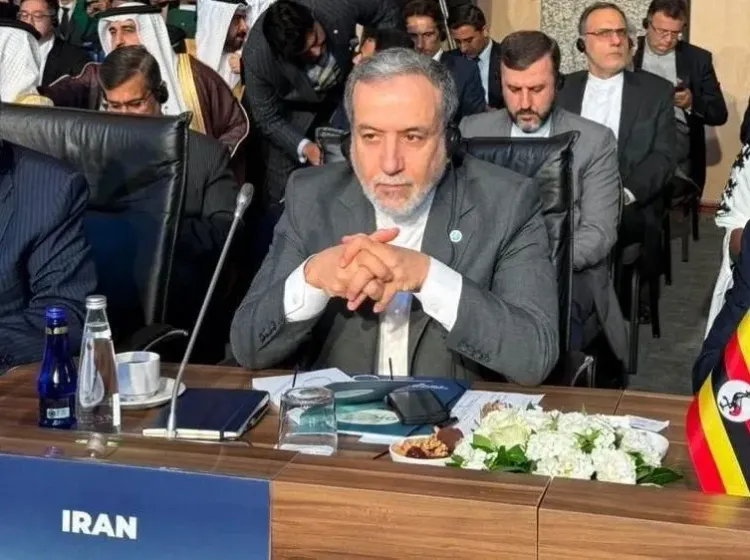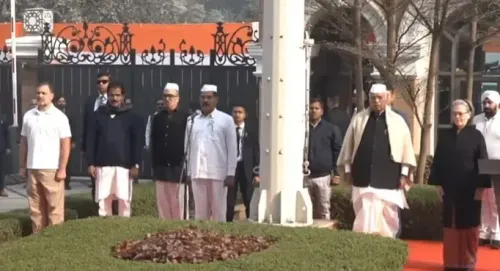Is Iran Always Open to Negotiations Regarding Its Nuclear Program?

Synopsis
Key Takeaways
- Iran is open to negotiations on its nuclear program.
- Security assurances are essential for future talks.
- Recent conflicts emphasize the need for diplomacy.
- Cooperation with the IAEA is being restructured.
- Ceasefire achieved after intense military exchanges.
Tehran, July 13 (NationPress) Iran has consistently maintained its stance of being ready to engage in discussions regarding its nuclear program, stated Iranian Foreign Minister Seyed Abbas Araghchi. He emphasized, “However, it is essential to ensure that any future negotiations do not escalate into conflict instigated by the United States or other nations,” during a meeting with foreign diplomats and representatives on Saturday.
Araghchi remarked that the recent confrontations between Israel and Iran underscored the necessity for a return to diplomatic efforts and a mutually agreed resolution, as reported by Xinhua news agency through the Iranian Students' News Agency.
The United States, according to him, has undermined diplomacy by supporting Israel's attacks on Iran and subsequently targeting Iranian nuclear infrastructures. He insisted that if the United States wishes to reinitiate negotiations, it must provide assurances that similar circumstances will not repeat.
During any negotiations, the nuclear rights of the Iranian populace, particularly concerning domestic uranium enrichment, must be honored. He reiterated that discussions should exclusively revolve around Iran's nuclear ambitions, while its military capabilities would remain off the table.
He noted that Iran's collaboration with the International Atomic Energy Agency (IAEA) has not ceased but has evolved into a new framework. From this point forward, Iran's engagements with the IAEA will be overseen by the country's Supreme National Security Council, which will evaluate future cooperation considering security and safety factors.
On July 1, Iran legislated a measure to halt cooperation with the IAEA and redirected its future interactions with the agency through the Supreme National Security Council, instead of the Iranian Atomic Energy Organization.
In a series of significant airstrikes on June 13, Israel targeted nuclear and military installations in Iran, resulting in the deaths of high-ranking commanders, nuclear scientists, and civilians, according to Iranian officials.
Iran retaliated with multiple missile and drone strikes on Israeli territory, inflicting casualties and damage.
A ceasefire was established between the two nations on June 24, concluding 12 days of intense conflict.










